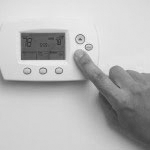Thank you for using
Platinum services
We will send you a link for accessing your service request to the email:
If you haven’t received an email with a link to your dispatch, please make sure you have a Super account with the email you entered and that you supplied the correct confirmation number.
still no link?
Give us a call at (844) 997-8737
Done
Edit Information
Thank you for using
Platinum services
Unfortunately we could not find a claim for the information you provided.
Give us a call at (844) 997-8737
Done
Edit Information
 Click Here To Call Us
Click Here To Call Us
 1. Change your air filters. Air filters get dirty, especially here in the dusty desert. It’s a good idea to change your filters before you go on a trip.
1. Change your air filters. Air filters get dirty, especially here in the dusty desert. It’s a good idea to change your filters before you go on a trip. 2. Adjust your thermostats Electricity isn’t cheap, particularly not in the summer. Adjust your thermostats so that the temperature in your home is a little warmer while you are away. This simple action will save you money on your energy bill and will help prevent your air conditioning from overheating while you are away.
2. Adjust your thermostats Electricity isn’t cheap, particularly not in the summer. Adjust your thermostats so that the temperature in your home is a little warmer while you are away. This simple action will save you money on your energy bill and will help prevent your air conditioning from overheating while you are away. 3. Unplug major electronics Another easy action worth taking is to protect your electronics from a possible power surge. Unplug your favorite electronics to avoid any damage while you are away.
3. Unplug major electronics Another easy action worth taking is to protect your electronics from a possible power surge. Unplug your favorite electronics to avoid any damage while you are away.


